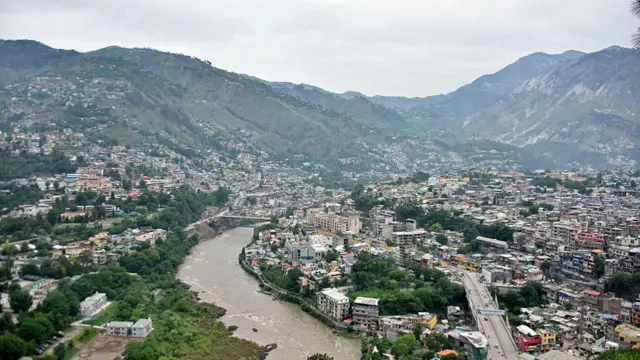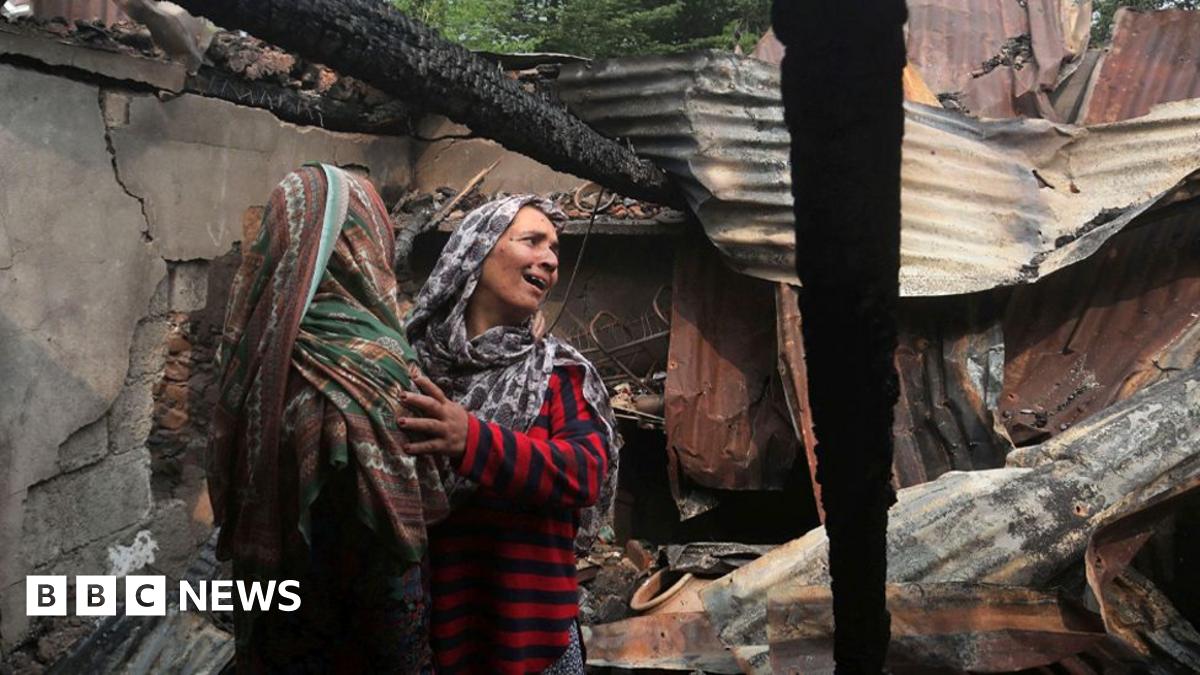08:56 BST
Farhat Javed
Reporting from Muzaffarabad, Pakistan-administered Kashmir
 Image source, AFP
Image source, AFPImage caption,
Tourists in Muzaffarabad, in Pakistan-administered Kashmir are slowly moving out.
In the hotel we stayed at in Muzaffarabad, in Pakistan-administered Kashmir, the mountain-facing rooms were slowly emptying out.
These rooms have a fabulous view, looking straight onto the mountains that separate Pakistan-administered Kashmir from the Indian-administered side. On any other day, they’d be considered premium. Now they
feel too exposed.
“We don’t have guests or tourists anymore. Those who are here will be moved elsewhere,” a staff member at the hotel told me on Thursday, lowering his voice.
In the next few hours, the BBC team was also moved to the
lowest floor of the hotel.
“You never know what will happen next. No-one wants to sleep facing the Line of Control (LoC – the de facto border between the countries) tonight,” the staff member added.
There’s good reason for the fear.
Last night was the second straight night of blackouts in several
parts of Pakistan-administered Kashmir.
From our hotel window, we could see
artillery fire lighting up the sky. Shelling continued well into the night
in several sectors along the LoC.
Muzaffarabad, the administrative centre of Pakistan-administered Kashmir, is among the places India said it targeted in air strikes early Wednesday.
The city was placed under a full blackout last night. It was an advisory but most people followed it without question. Lights were turned off in homes, hotels and shops. Streets that were usually full with the
sound of late-night vendors were eerily quiet.
The intensity of the military language between India and Pakistan, along with the tone of the press briefings and statements, have sent a wave of anxiety across the region, especially here, close to the border.
In the corridor of one of the hotels here, a young couple from Karachi was deciding whether to return home early.
“We came for a vacation,” the woman said, “but now we’re checking missile ranges on Google.”
